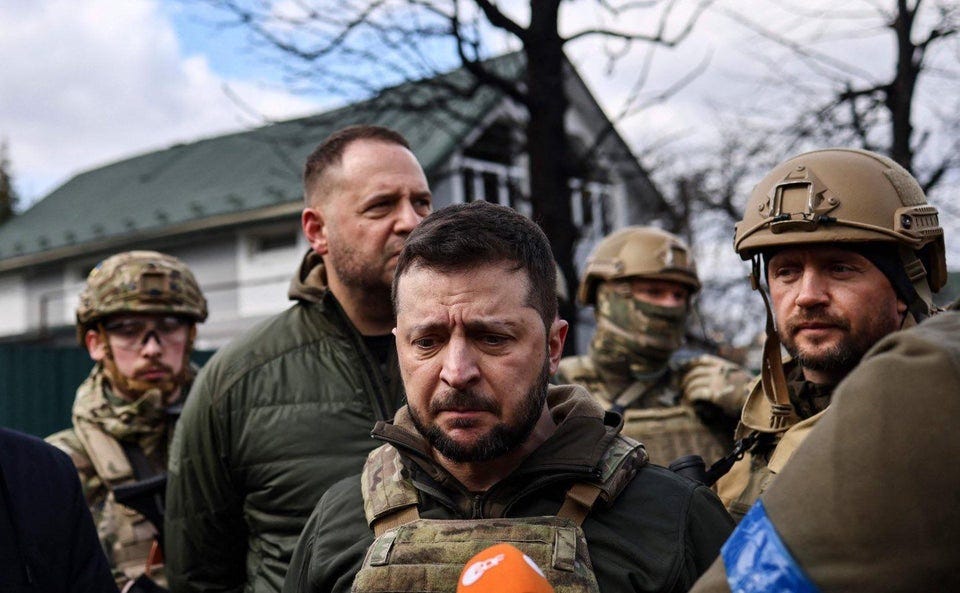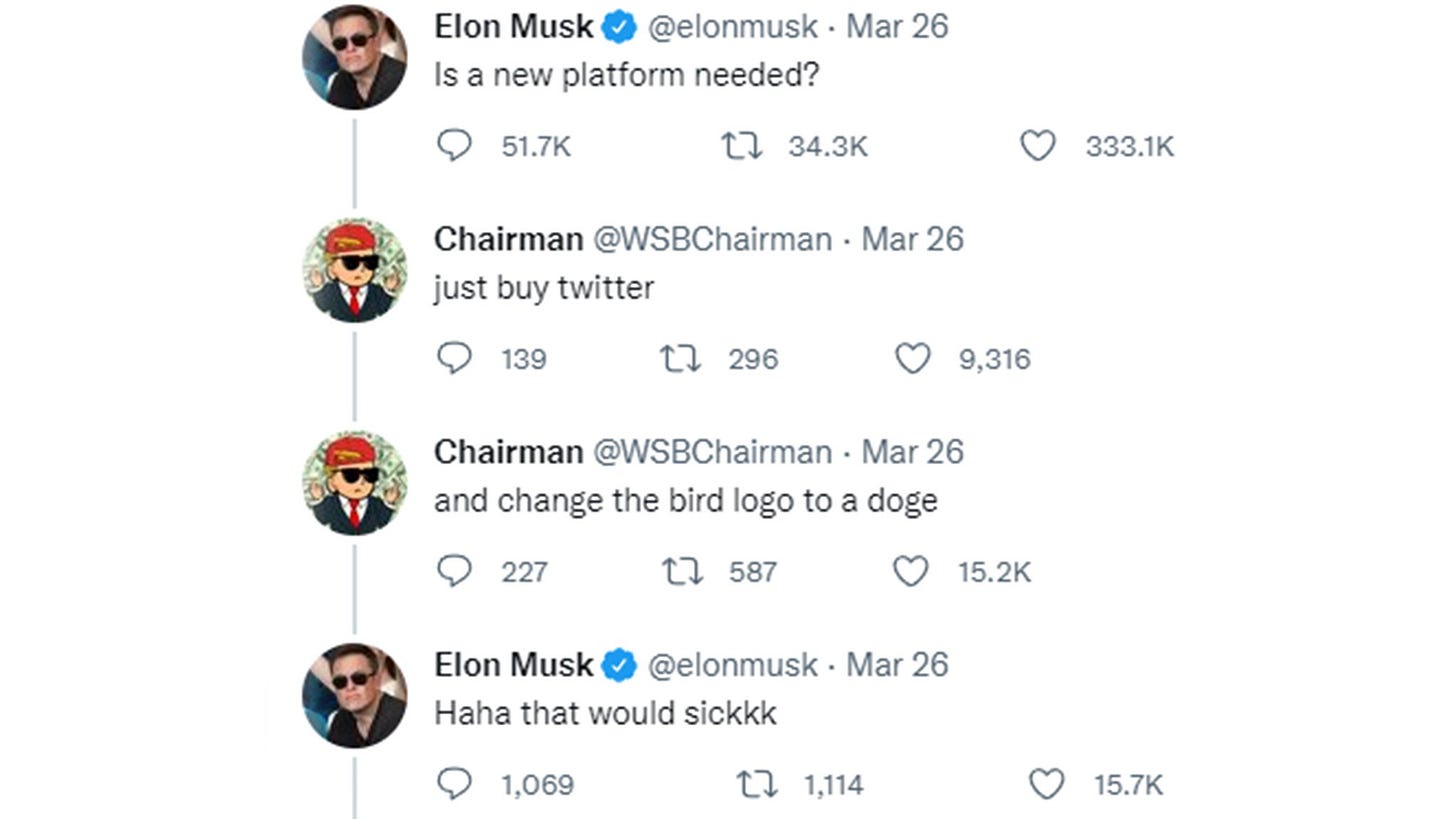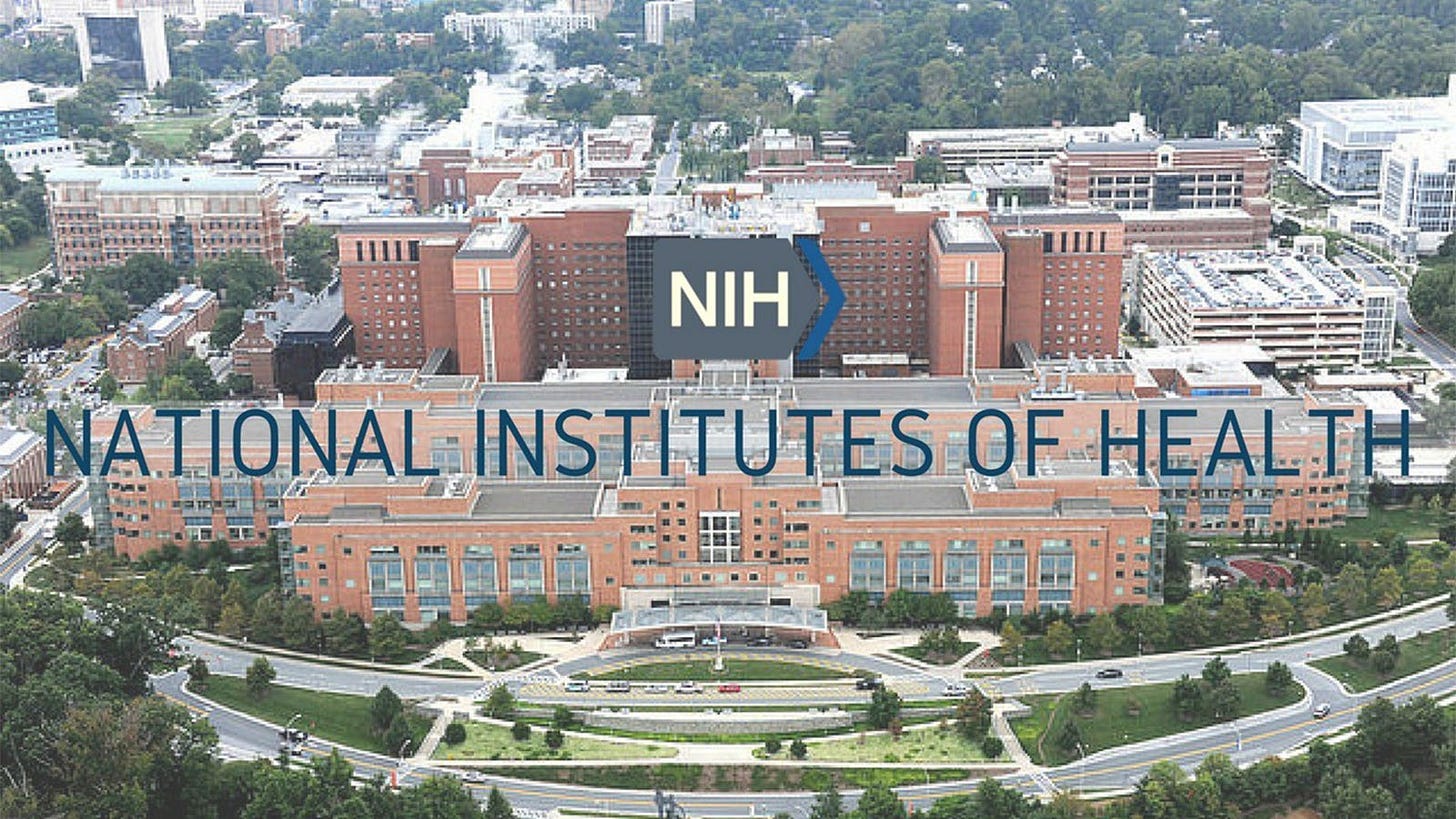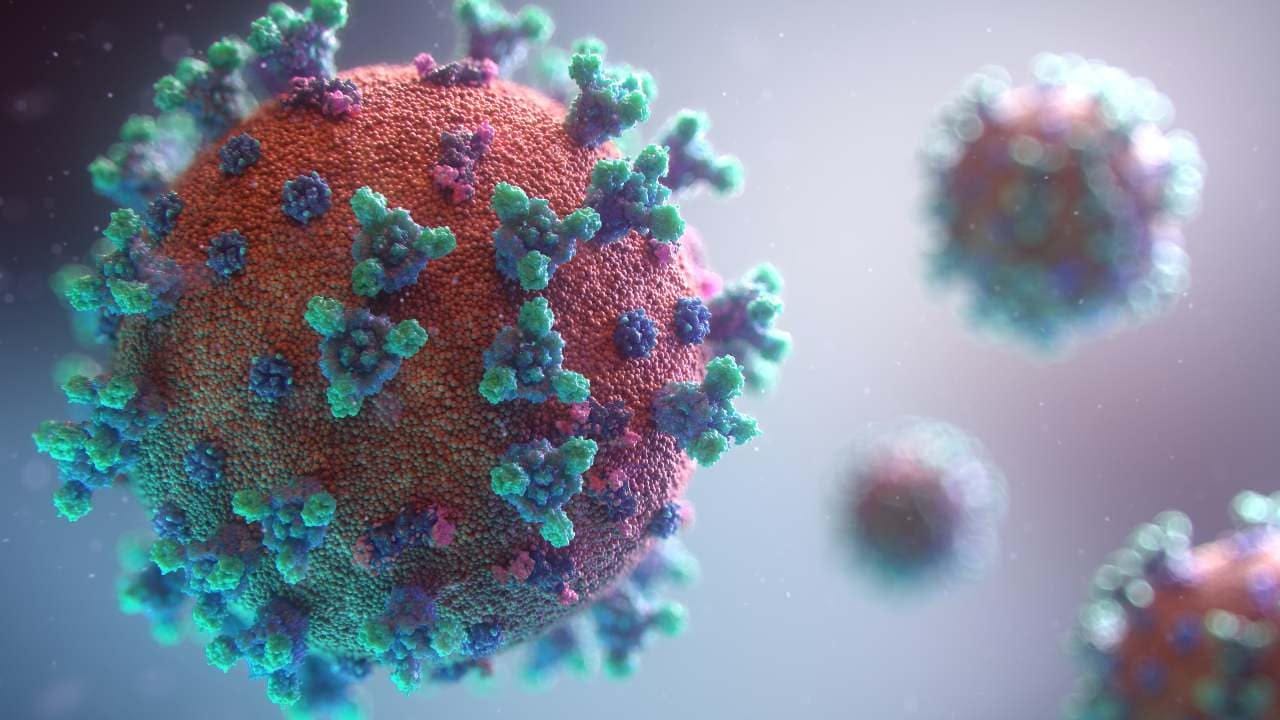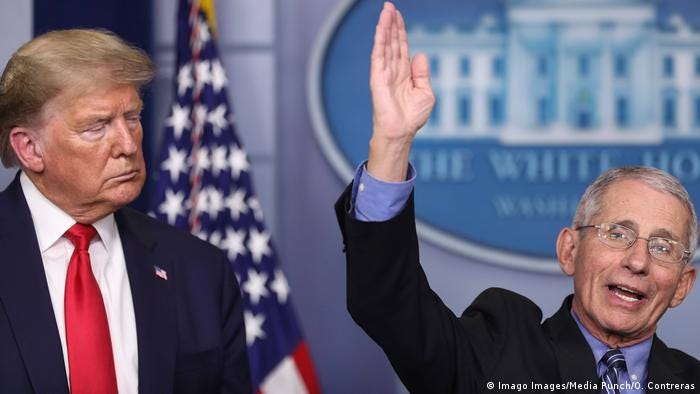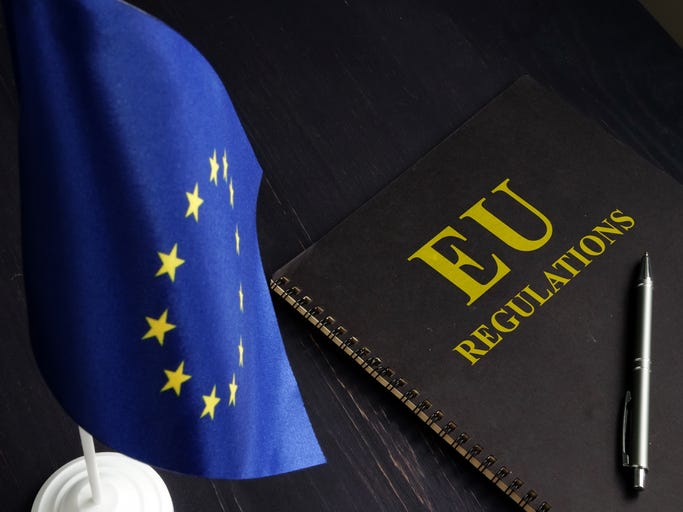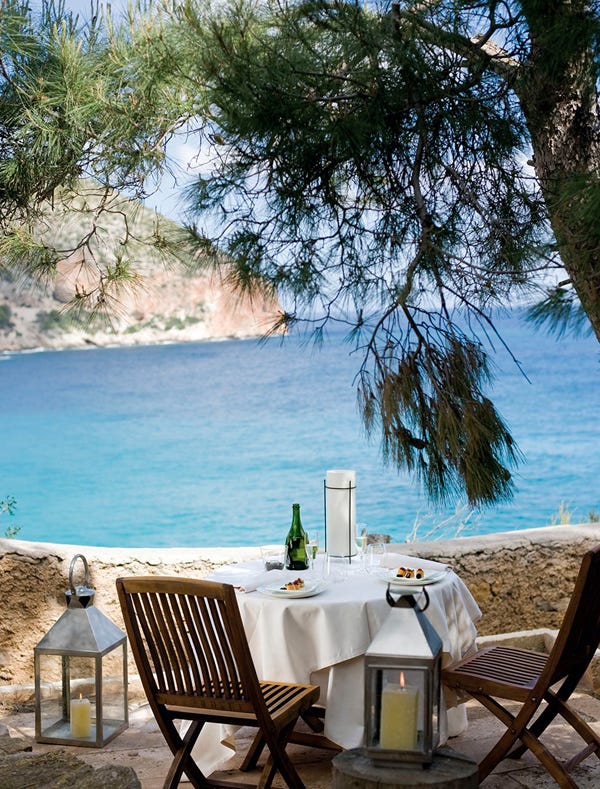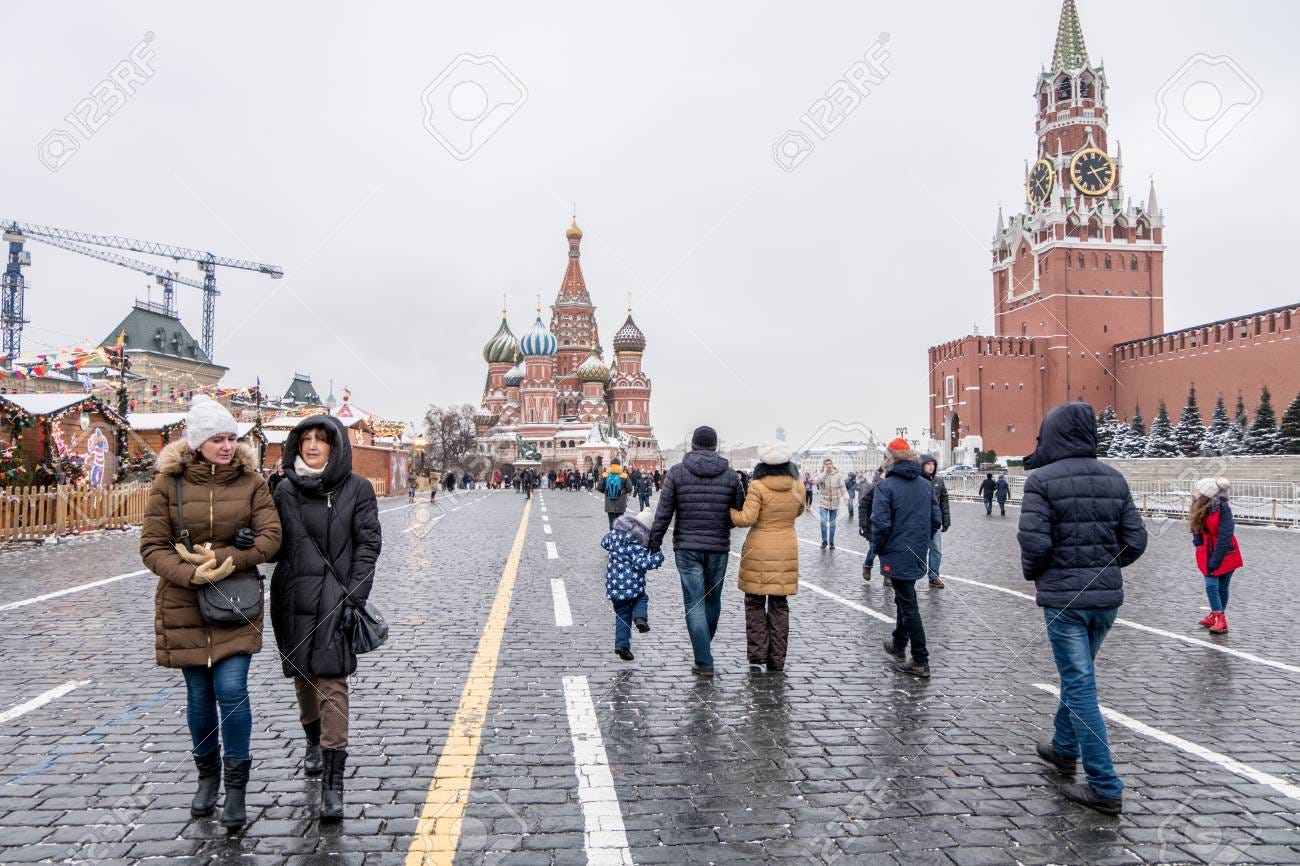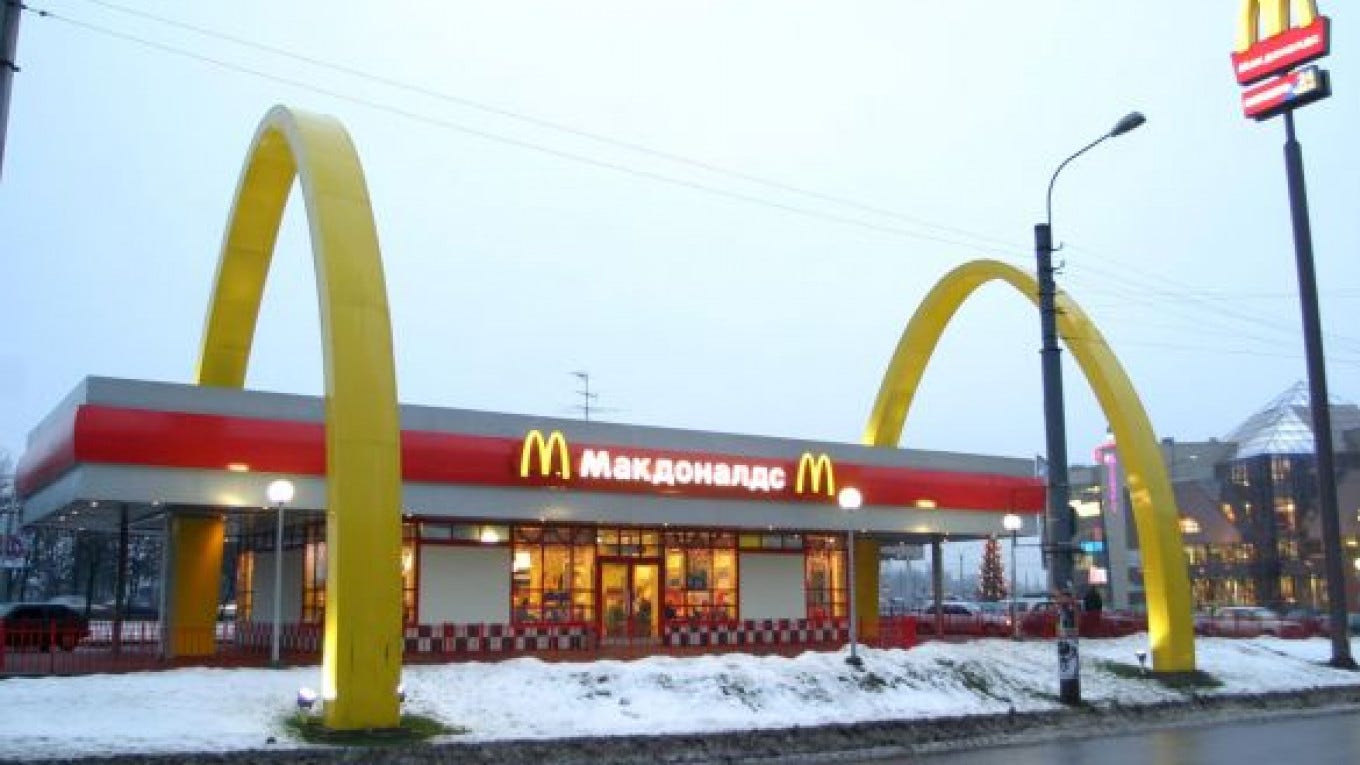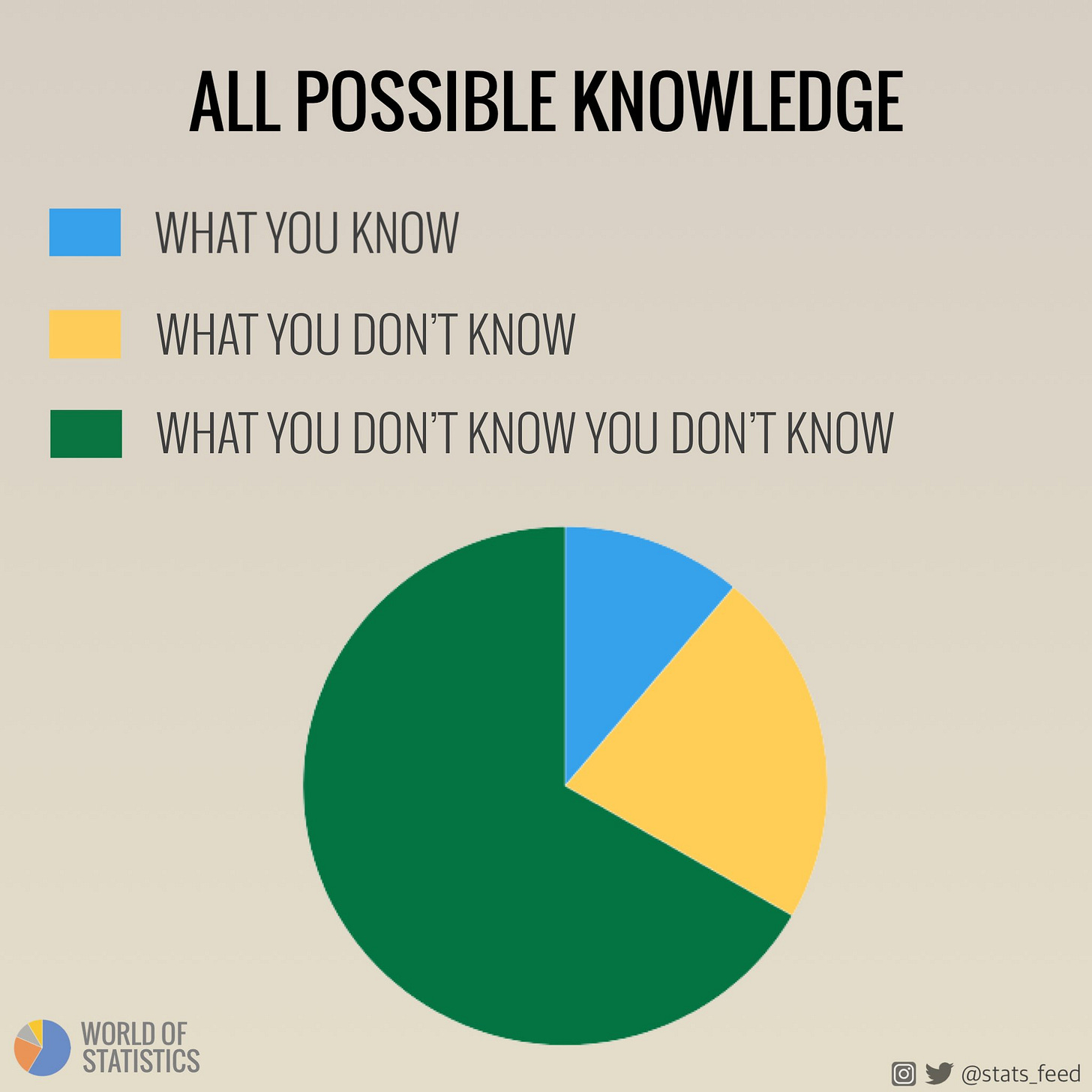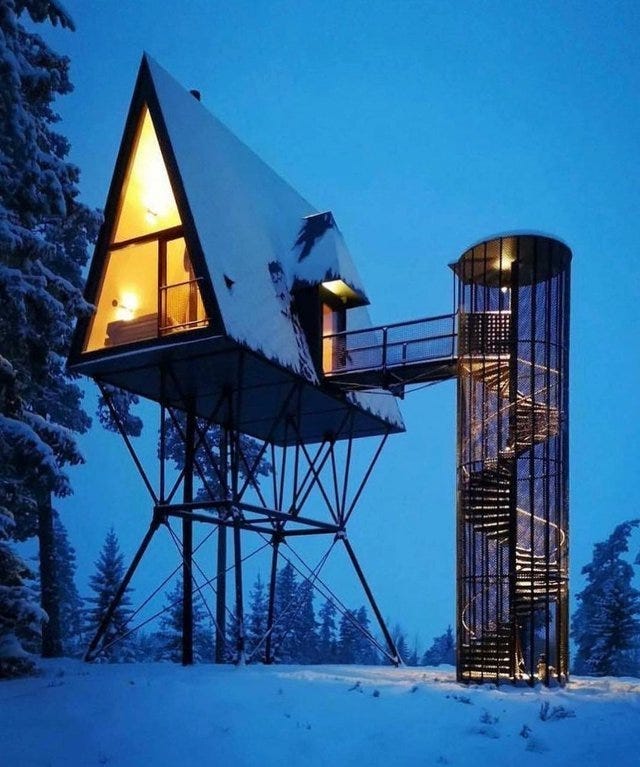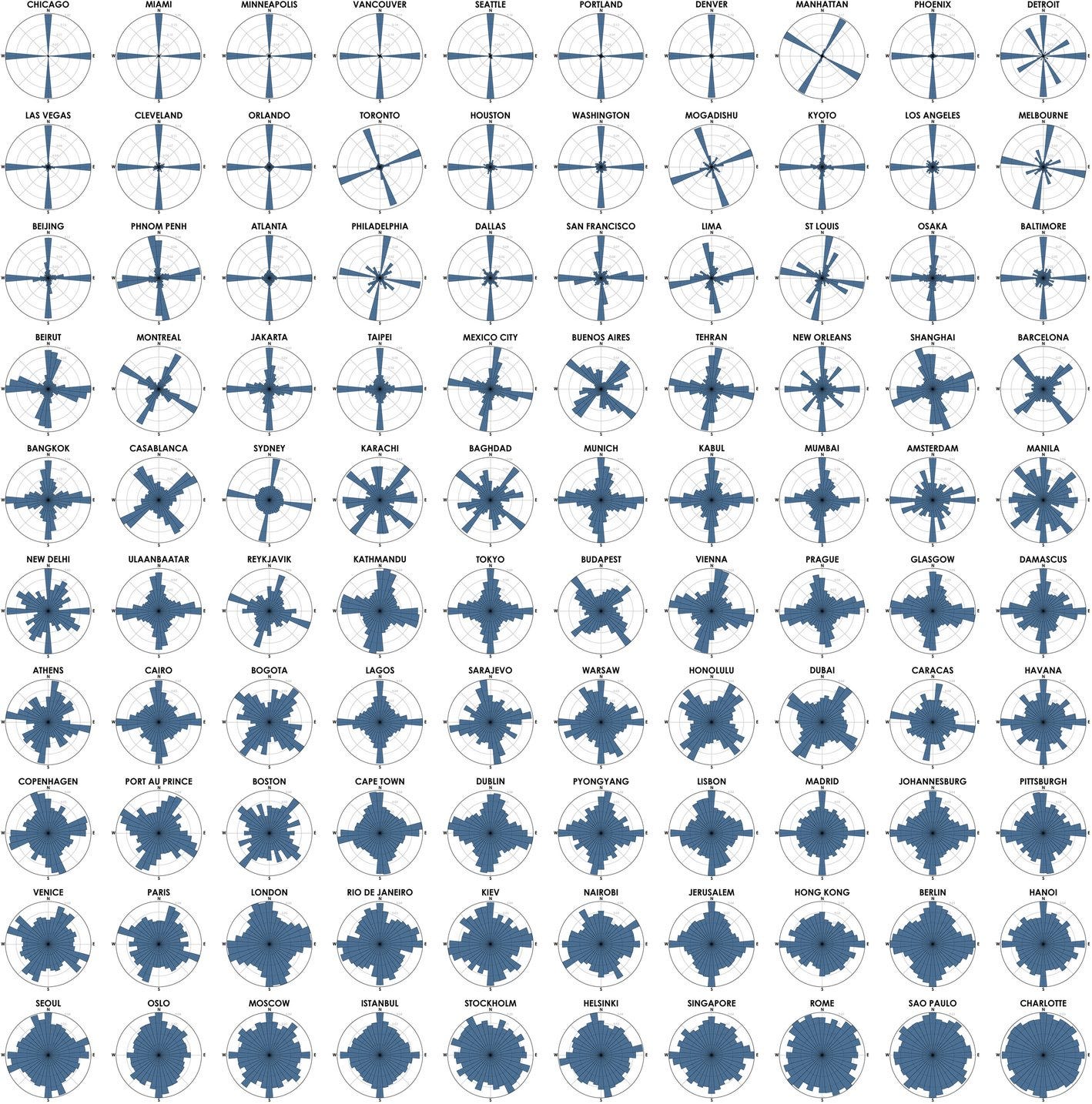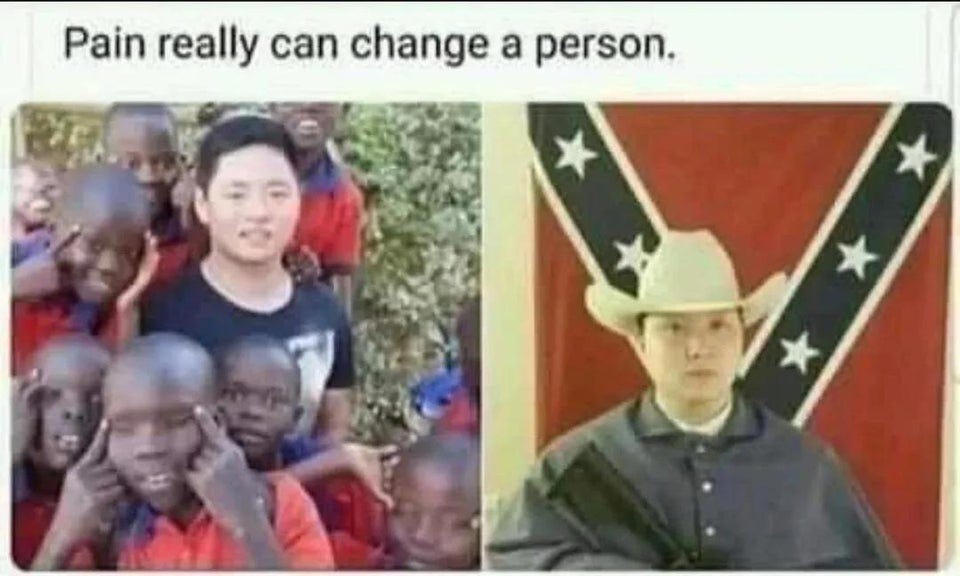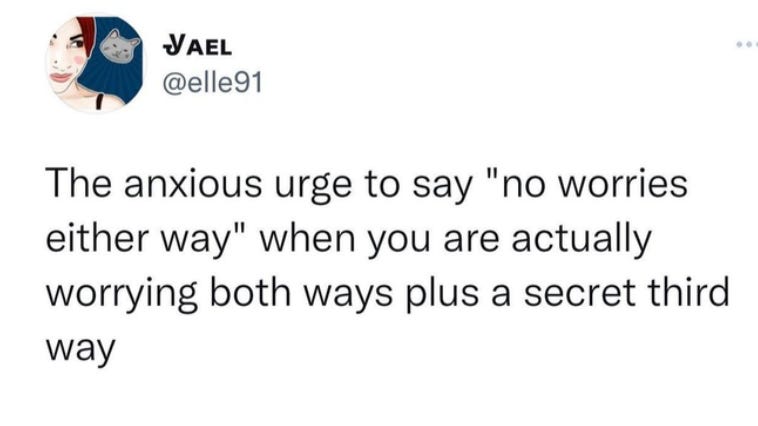MBW - 4/5/2022
Good morning friends. It’s a rainy Tuesday morning from where I am standing. Let’s see what’s going on in the world today.
News Briefing
•Russian Foreign Minister Sergei Lavrov calls alleged atrocities in Bucha a "fake attack" that was "staged" several days after Russian forces withdrew from the area.
•Zelensky in his visit in Bucha
•Vladimir Klitschko from Bucha
•The United States will ask the U.N. General Assembly to suspend Russia from the Human Rights Council, the U.S. ambassador to the United Nations said on Monday, after Ukraine accused Russian troops of killing dozens of civilians in the town of Bucha. More on this here.
•In other news, Elon Musk has taken a 9.2% stake in Twitter, according to a US securities filing. The stake is worth $2.89bn, based on Twitter's closing price on Friday. A couple of weeks back he was inquiring about the preservation of free speech on twitter and making its algorithm open source. Also this:
Origin of Covid-19: Fauci and NIH (part 2)
Anthony Fauci, who leads the NIH’s infectious disease research institute, has become a household name across America and he has played a crucial role in the Covid-19 saga long before it turned into a pandemic.
In 2014, Fauci’s agency had issued a $3.7 million grant to EcoHealth Alliance. The grant, titled Understanding the Risk of Bat Coronavirus Emergence. The Wuhan Institute of Virology (WIV) was a key collaborator to whom EcoHealth Alliance gave almost $600,000 in sub-awards. But the work there had been controversial enough that the NIH suspended the grant in July 2020.
EcoHealth Alliance’s $3.7 million NIH grant first set off alarm bells in early May 2016. The NIH requires annual progress reports, but Peter Daszak’s year-two report was late and the agency threatened to withhold funds until he filed it. The report he finally did submit worried the agency’s grant specialists. It stated that scientists planned to create an infectious clone of Middle East Respiratory Syndrome (MERS), a novel coronavirus found in dromedaries that had emerged in Saudi Arabia in 2012 and killed 35% of the humans it infected. The report also made clear that the NIH grant had already been used to construct two chimeric coronaviruses similar to the one that caused Severe Acute Respiratory Syndrome (SARS), which emerged in 2002 and went on to cause at least 774 deaths worldwide. (A chimeric virus is one that combines fragments of different viruses.) The NIH agreed to Daszak’s terms, which relied entirely on mutual transparency: Shi would inform him of any concerning developments involving the lab-constructed viruses, and he would inform the agency.
In September 2019, three months before the officially recognized start of the pandemic, the Wuhan Institute of Virology took down its database of some 22,000 virus samples and sequences, refusing to restore it despite international requests. By October 2021, the NIH had repeatedly demanded that EcoHealth Alliance turn over data related to its grant research with the WIV. Daszak argued that he couldn’t share a number of SARS coronavirus sequences because he was waiting for the Chinese government to authorize their release. The explanation seemed to undercut the entire rationale for having the U.S. government help fund a global collaboration on virus emergence.
In April 2020 Fauci declared from the White House podium that a recently published analysis from a “group of highly qualified evolutionary virologists” had concluded that the virus was “totally consistent with a jump of a species from an animal to a human.” He was referring to the Proximal Origin letter (more on this later), drafted by some of the scientists he’d met with confidentially in early February. The next day, Daszak sent an email of profuse thanks to Fauci for “publicly standing up and stating that the scientific evidence supports a natural origin for COVID-19 from a bat-to-human spillover, not a lab release from the Wuhan Institute of Virology.” Fauci responded, thanking him back.
Nevertheless, the EcoHealth Alliance bat coronavirus research grant, which had provided subgrants to the WIV, was terminated six days after.
On The EU Giving Up (part 2)
The basis for development and industrialization in the 21st century is one and only one thing TECHNOLOGY, i.e. machine learning, cryptoassets, robotics, biotech. These technologies will raise the quality of life for citizens/civilians but also drive military strength. The idea that Europe can concede the field in these areas to the USA and China and just be the referee saying "You can't do this" and "You can't do that" is a complete joke of a strategy. Now this is not officially the strategy. Officially the EU is for all these things, but done under the careful guiding hand of Brussels. It won't work that way. You can maybe build military aircraft in a centralized way, but tech fields are built on startups, startups need flexibility and startups are mobile.
The social rights of Europeans, the social benefits are paid for by prior industrialization efforts. If you want your kids and grandkids to also have that sweet sweet European life, well you, and your elected officials, have to do the work like your grandparents did. The world is a competitive place, there are no free lunches. The idea that the Europeans can rest on their laurels for 50 years while the Americans and Chinese do the work of digital industrialization and also expect that the Europeans will have the best lives in the end, well that is a fairy tale. A bedtime story for children.
Europeans are smart but often constrained. America might do a lot of things wrong but the wide open space that it provides in its mythology is very powerful. The EU should encourage its citizens to take more innovation risk, not less innovation risk.
The EU is the only other economy in the weight class of the United States and the only economic superpower that also believes deeply in constitutional democracy. It is important that the EU comes along for technological development. (Credit to: Punk6529)Life in Russia These Days
I often feel that the image western audiences create from following mainstream media is often twisted. Here is an account of someone living in Moscow so that we can get a better perspective of the everyday reality in Russia these days.
“In Moscow, one is unlikely to recognize at first that this is a country at war. However, tuning in to occasional chatting reveals that people are constantly discussing international situation. “Haven't we already taken Kherson?”, or “the Chinese will never let us down”. Businessmen take the new situation as a given and quickly adapt without much debate. Inside shopping malls, everything indicates that current closedowns are temporary. Even McDonalds hasn’t really pulled out from Russia but rather made its presence less visible. Its franchises keep operating, mostly in the Eastern parts of Russia. There are very few known cases of layoffs because of sanctions. Most TNCs are putting people on paid leave for 2-3 months and discussing what their strategy will be “when everything is back to normal”.
One of Big 4 firms is rebranding in Russia and tells clients contracts will be kept under the new entity. In the offices few white-collar people feel like they are living through a catastrophe. The majority is planning to explore new business opportunities and tends to believe things will get back to normal pretty soon. Open discussions about military operation are rare, for dissent is criminalized.
Many families are split along the generational line, younger people prefer to abstain from discussing with parents. There are minor shortages of meds, and some people are trying to replenish their stock. However, the initial panic seems to have died down. The ruble has bounced back. It is difficult to buy currency in Moscow but the exchange rate gives confidence. It is possible to go to the neighboring countries and buy $ practically at the same rate as it was before the “military operation” started. The inflation is not necessarily connected with war. A taxi driver from Belarus complains about rising prices. However, from his perspective prices were rising for several years already, it is just that for some reason it got even worse now. He doesn't mention war. The tension is in the air, however. Several people have approached me to ask if I think there will be a war. This implies, of course, that there is currently no war.
Possible use of nuclear weapons got normalized. Conversations about consequences of war often trigger the nukes threat. “They will lift all these sanctions b/c we have nukes” “They will give in anyway, otherwise we will try our nukes on them”. For many Russians, Putin is testing, once again, the ingrained belief that might makes right. The West is often said to be weak because it is not ready to risk a nuclear war. Still, not much enthusiasm about military operation around. The cars with Z-symbols are few, the chance is higher to see an anti-war slogan on the wall. This stands in sharp contrast to 2014 when there were many ribbons on the cars.” (Credit to: Greg Yudin)
Pics, vids & memes
Ever wandered how bridges were built in the middle ages?
Night skating in Colombia
All possible knowledge
Cabin in Norway
Measuring the entropy of 100 cities around the world using the orientation of the streets. In the upper of the chart you find the cities with the most ordered streets.
Each of the eight stadiums at the World Cup, in Qatar, will have large arrays of gigantic air conditioners to battle the very hot temperatures
Pain
Leaving California
Me irl
That was it for today folks. Enjoy your day. See you tomorrow. Peace.



